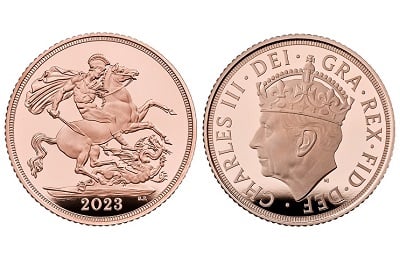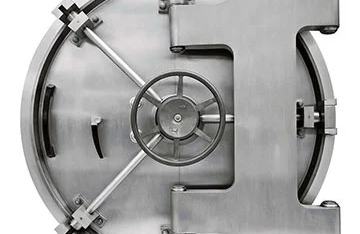Where to find gold in the UK
Gold has been found in the UK for millennia, and was a key factor in the Roman Empire’s expansion into Britain. Although large-scale gold mining has all but ceased, gold can still be found across Great Britain, and hobbyists across the country regularly hunt for gold in the hopes of finding the precious metal. With an ounce of gold being valued at more than £1,500 in recent years, it’s easy to see why people dedicate their spare time in pursuit of British gold.
Finding gold in the UK
Alluvial gold – the flecks and small nuggets found in Britain’s rivers – is exposed from mining, earthquakes and erosion over time. Having been washed downstream, the heavy weight of the gold means that only strong currents can move them. Once the current settles, these deposits of gold will sink into the gravel and dirt of the riverbed. Prospectors will look for locations in the river where the current is weakest, and the recommendation is to look for bends in the river.
Once a spot has been chosen, gold is usually removed via panning. Panning kits can be bought online for reasonably low costs and the simplicity of the method makes it ideal for beginners.
We reported back in 2018 that Britain’s largest ever gold nugget was found in Scotland. The location has been kept secret to stop people flocking to the site in a gold rush. Known as the ‘Douglas Nugget’, it was valued at over £50,000 thanks to the rarity of such a find in Britain.
The amount of gold found from panning is often small and – similar to other hobbies – much of the enjoyment in panning is derived from the act itself rather than the potential financial gains. It is rare for panning to make significant money, but the memories and time spent enjoying the beauty of the Great British countryside could be considered as valuable as the gold discovered.
Gold panning UK locations
Gold can be found in all four countries of the UK, and below are just some of the more common areas panning takes place.
England –Lake District, the Pennines, the Forest of Dean and Cornwall.
Scotland – Dumfries and Galloway (the origins of the Douglas Nugget as mentioned above).
Wales – The Welsh Gold Rush of the 1860s is long gone, but the Dolgellau Gold Belt in Snowdonia still yields gold to this day. The ancient Dolaucothi Gold Mines in Camarthenshire also offer visitors a chance to try panning with supervision, and the Parys Mountain in north-east Anglesey is currently being considered for a mining site.
Republic of Ireland – With a name like ‘Gold Mines River’ its unsurprising that this area in County Wicklow is a popular location for Irish gold hunters.
The locations above are known sites that still regularly produce gold, but the UK has miles of untapped countryside that has never even been prospected. Just because gold hasn’t been found there yet should not be taken to mean it doesn’t exist there. Prospectors are understandably secretive when they find a good spot, and many take prime panning locations to their graves.
Gold prospecting UK
Before you set out on your first panning expedition there are some legalities to consider. First and foremost, you must ask permission from landowners before panning. A river at the bottom of a farmer’s field or country estate is still part of their property and accessing the land and removing gold should only be done with their agreement. They may also want a share of any profits made, and as the owner this is their right.
Environmental considerations are also important; many of Britain’s rivers are home to unique ecosystems and are areas of scientific or conservation interests. Prospectors should always make every effort to check if the river has any special environmental concessions. Even where there are no specific environmental cautions, care should be taken not to disturb wildlife or damage the nearby area.
Gold panning also sits in a moral grey area with regards to the legal ownership of gold removed. The Crown Estate, which manages a variety of property and land issues for the Royal Family, do not permit or licence gold panning.
The official Crown Estate statement says:
Although this is rarely enforced, it should be noted. Any gold found, removed and sold is technically in breach of this statement.
In Ireland “recreational panning” – using hand-held, non-motorised equipment, is allowed but the gold is still owned by the state. Selling the gold gathered is considered ‘working’ of minerals and requires permission by the Irish Government.
Panning can be an enjoyable hobby if practiced responsibly, and you may be able to find local groups or individuals who can help you take your first step, but please thoroughly research the activity and take safety precautions before taking part.
Finding gold coins in the UK
One of the other popular ways to find gold in the UK is looking for items rather than natural occurring ores and deposits. With gold coins forming a part of British commerce for centuries, many have been lost to time, and are just waiting for someone to pick the right spot and find some buried treasure.
Even in recent years, people are finding valuable gold coins in various parts of the UK, such as this recent Henry III gold Penny found in Devon. Determining where to find gold coins in the UK is difficult, as many ancient buildings have been forgotten, but with local historical knowledge and a good metal detector, this hobby can also be a good way to find gold in the UK.
- How To Buy Gold
- How to Buy?
- Payment Options
- Delivery Options
- Gold Storage
- Storage at Brink's
- Gold Investment Guide
- Why buy gold?
- Is gold a good investment?
- Why physical gold?
- Best time to buy gold?
- Gold bars vs coins?
- Gold vs Silver
- Gold - Silver Ratio explained
- VAT on bullion
- CGT on bullion
- Legal tender coins
- Top 5 Gold Investments
- Top 5 Silver Investments
- Gold vs ISAs
- Gold vs Buy-to-Let
- Gold vs FTSE 100
- Gold vs Bitcoin
- Where to buy gold?
- Why buy from us?
- Where to sell gold?
- Coin Shops
- Gold Price Forecasts
- Top 10 Gold Producers
- Top 10 Gold Reserves
- Gold Britannia vs Sovereign
- Britannia coin designs
- Sovereign coin designs
- Sovereign Mintages
- Sovereign mint marks
- British coin specs
- What is a proof coin?
- Royal Mint bullion
- The Queen's Beasts
- Royal Mint Lunar Coins
- Bullion Refiners
- British coin mints
- Krugerrands
- Gold Tola - India & Pakistan
- Bullion Index







